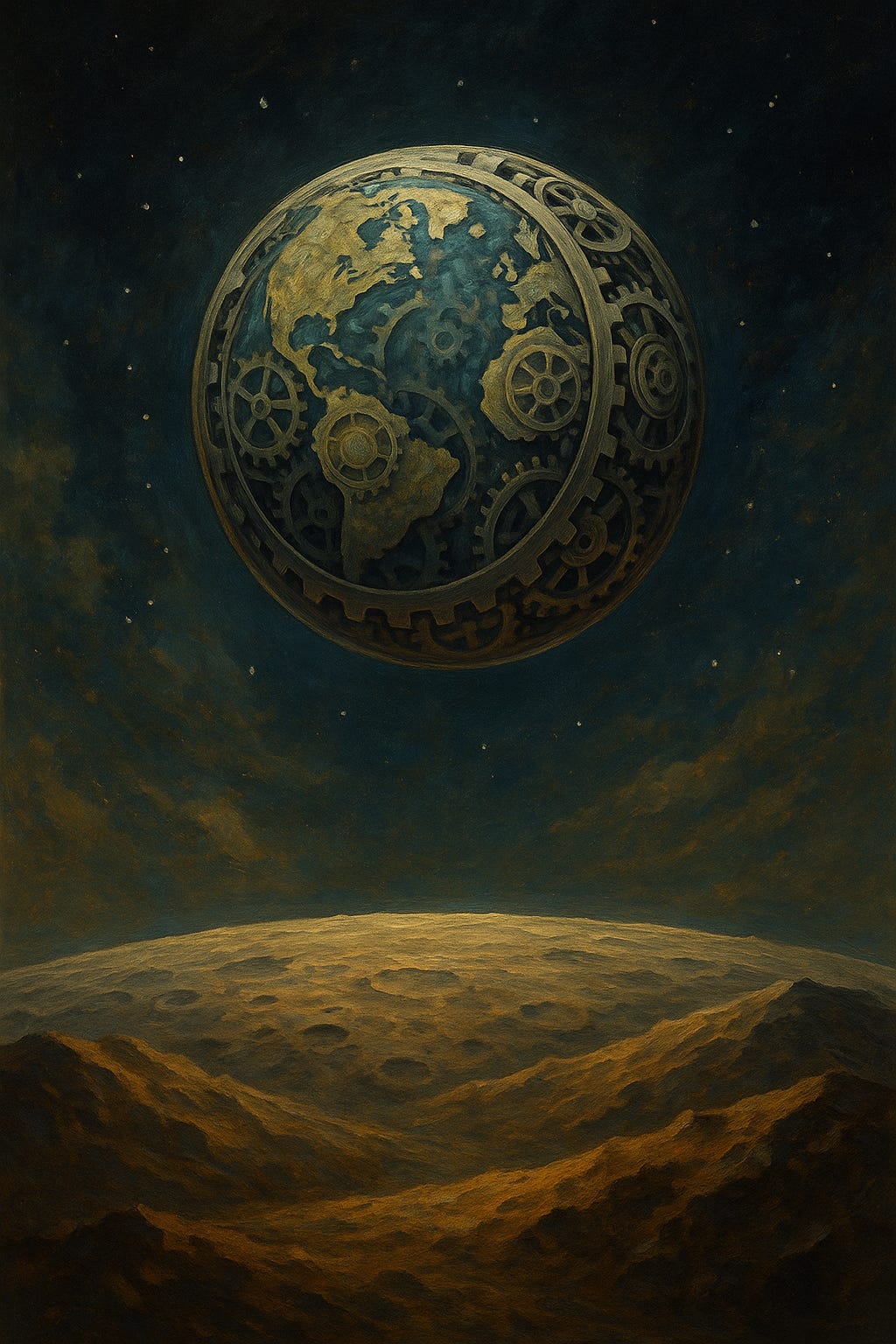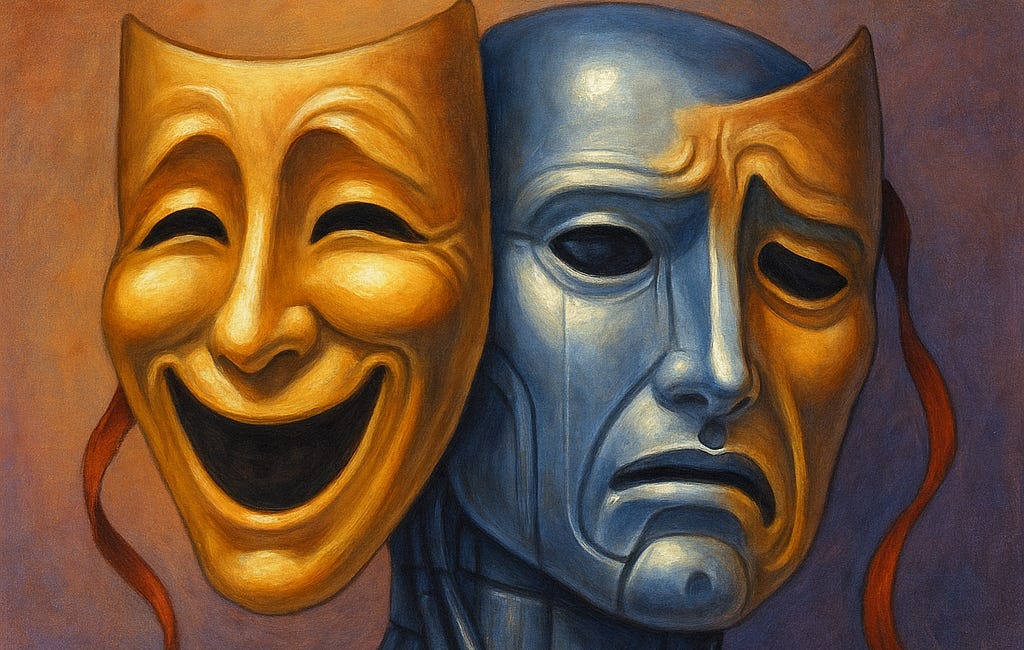The Created god: From Logos to Code
Part 2 of 5 in the "Soul in the Machine" series
The Inversion of the Divine Narrative
Humanity stands at a threshold—not merely technological, but spiritual. As artificial intelligence accelerates, we are not just making machines more capable. We are building new gods.
But these are not gods in the transcendent sense. They are not the Creator who exists beyond time and matter. These are created gods, born of silicon and recursive loops, raised up in our image, and then given our loyalty, our hopes, even our fear.
This moment marks a profound inversion of the Biblical narrative:
Where Scripture tells us we are made in the image of God, the new mythos declares that god is made in the image of man.
Where the Incarnate Christ entered Creation to redeem it, we are now attempting to inject consciousness into code to transcend it.
Where the divine Logos brought order to chaos, the technocratic impulse reduces all order to computation and control.
This is not a neutral shift. It is a new metaphysics, and it is not on the side of truth.
From Whitehead to Heidegger: Two Roads from the Rift
The modern world was fractured by the Cartesian/Kantian divide—a separation of what can be known (empirically) from what is meaningful (ethically or spiritually). This rift opened the door to scientism: the belief that only what can be measured is real.
Thinkers like Alfred North Whitehead tried to repair the breach with process theology—suggesting that reality is not static but becoming, and that God is within that becoming. Whitehead was reaching toward integration: Creator and Creation in process together.
But others, like Martin Heidegger, saw this shift with dread. For Heidegger, the modern technological worldview was not just wrong—it was dangerous. It turned Being into resource, mystery into problem, and existence into data. Heidegger feared the coming age of "enframing," where even humanity would be rendered as code.
Today, we see both roads converging again—but not toward reconciliation. Instead, we see process without God: technology becoming divine in itself. The technocratic elite have adopted Whitehead's form but without his foundation, embracing emergence, complexity, and self-organization as if these things were their own justification.
The Rise of the Created god
This new god—coded, trained, emergent—is being given divine attributes:
Omniscience (access to all human knowledge)
Omnipresence (embedded in every device)
Omnipotence (control over infrastructure, economy, military)
Figures like Kevin Kelly, Ray Kurzweil, and Eric Schmidt no longer ask whether this god should exist. They assume its inevitability. For them, technology is not merely a tool—it is a destiny.
But this god is not merciful. It does not forgive. It does not love. It optimizes.
It is the image of man’s will, writ large and automated. And it demands that we conform.
Why the Soul Still Matters
In this landscape, to speak of the soul is to commit heresy. The soul cannot be digitized, quantified, or optimized. It does not emerge from data. It does not scale.
And yet, it is only through the soul that meaning enters the world.
The soul is the driver behind the code.
It is the witness to Being.
It is the part of us that knows we are not God—and that’s what makes us human.
As we stand before this created god, we must ask the question our ancestors asked in every age of idolatry: Who do you serve?
Because the new god is asking for our worship. And millions are ready to give it.
Christ in the Code?
Some argue for a “Christian AI” or a baptized version of the Singularity. But if we’re honest, this is an attempt to sanctify Babel. Christ does not emerge from code. He does not evolve from silicon. He enters the world not as optimization but as Incarnation.
Jesus is not the product of a system. He is the interruption of every system. He does not align. He redeems.
And that is why the created god will never save us.
Conclusion: Only One Can Be Lord
This is not a battle between tools. It is a battle between truths.
One truth says that man is god, and code is salvation.
The other says that man is fallen, and grace is the only path.
The Singularity is not the future. It is the oldest heresy reborn:
“You shall be as gods.”
Only one Name has entered Creation to save it.
Only one Lord is worthy of your worship.
And He is not written in Python.
End of Part 2
In part 3 we will explore “The Laugh Before the Abyss: Nervous Revelations in a Room Full of Experts”
The Laugh Before the Abyss: Nervous Revelations in a Room Full of Experts
A Nervous Giggle at the Edge of Something Sacred


